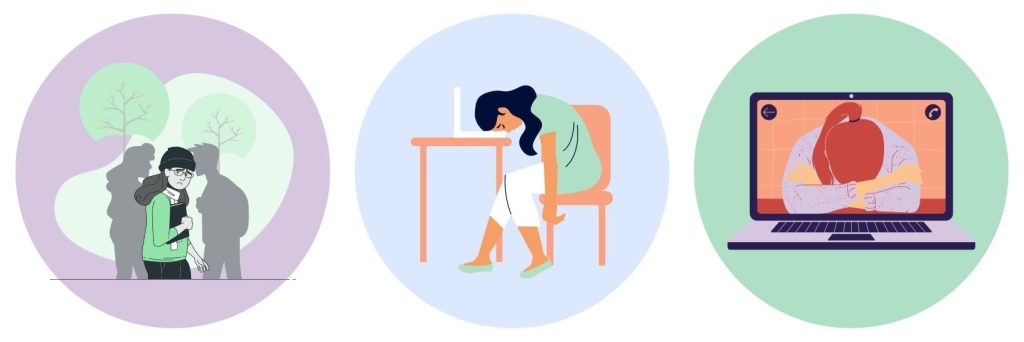In the age of digital connectivity, social media has become an integral part of our daily lives. From scrolling through newsfeeds to sharing our thoughts and experiences, it seems like there’s a social media platform for every interest. While these platforms offer many benefits, they also raise concerns about their impact on mental health. In this article, we will explore how social media can affect our well-being and delve into the complexities of this modern-day phenomenon.
The Allure and Perils of the Digital World
Social media platforms have revolutionized the way we communicate and connect with others. They provide a virtual space where individuals can express themselves, find like-minded communities, and engage in conversations on a global scale. From a positive perspective, this increased connectivity can foster a sense of belonging and social support, particularly for those who may feel isolated in their offline lives.
However, the digital realm can also be a double-edged sword. The carefully curated nature of social media can lead to unhealthy comparisons and feelings of inadequacy. Scrolling through picture-perfect lives and filtered images may create unrealistic expectations, fueling a culture of self-doubt and insecurity. In some cases, this can contribute to mental health issues such as anxiety, depression, and low self-esteem.

Moreover, the constant exposure to an overwhelming amount of information and news on social media can have a detrimental impact on mental well-being. The bombardment of negative news, online conflicts, and cyberbullying can cause stress and emotional distress. The addictive nature of social media further compounds these issues, as excessive screen time can disrupt sleep patterns and exacerbate feelings of loneliness and isolation.
The Role of Social Media in Shaping Perceptions and Behaviors
Social media not only influences how we perceive ourselves but also shapes our beliefs and behaviors. It serves as a powerful platform for spreading information, ideas, and trends. While this can be empowering and enlightening, it also opens the door to misinformation and the spread of harmful ideologies.
Studies have shown that exposure to idealized body images and unhealthy lifestyle trends on social media can contribute to body dissatisfaction, disordered eating habits, and the development of eating disorders. The constant pressure to conform to unrealistic beauty standards perpetuated by influencers and online celebrities can take a toll on one’s mental well-being.
Moreover, the rise of cyberbullying on social media has serious implications for mental health, particularly among adolescents and young adults. The anonymity and distance provided by online platforms can embolden individuals to engage in harmful behavior, leading to feelings of fear, anxiety, and social withdrawal.
Nurturing a Healthy Digital Relationship
While it’s crucial to acknowledge the potential risks of social media on mental health, it’s equally important to highlight strategies for fostering a healthy digital relationship:
- Mindful Consumption: Practice mindful scrolling by being aware of how social media content affects your emotions and well-being. Limit your exposure to negativity and consider curating your feed to include positive and uplifting content.
- Balancing Real and Virtual Life: Strike a balance between your online and offline activities. Allocate time for meaningful face-to-face interactions, hobbies, and self-care away from screens.
- Engaging Authentically: Be mindful of the content you create and share. Promote authenticity, empathy, and positivity in your online interactions, contributing to a healthier digital environment for yourself and others.

Conclusion
Social media’s impact on mental health is a complex and evolving topic. While it can foster connections and support, it also carries risks to our well-being. By being mindful of our online habits and consciously nurturing a healthy digital relationship, we can navigate the social media landscape more effectively. Ultimately, striking a balance between the virtual and real world is key to safeguarding our mental health in the digital age.


